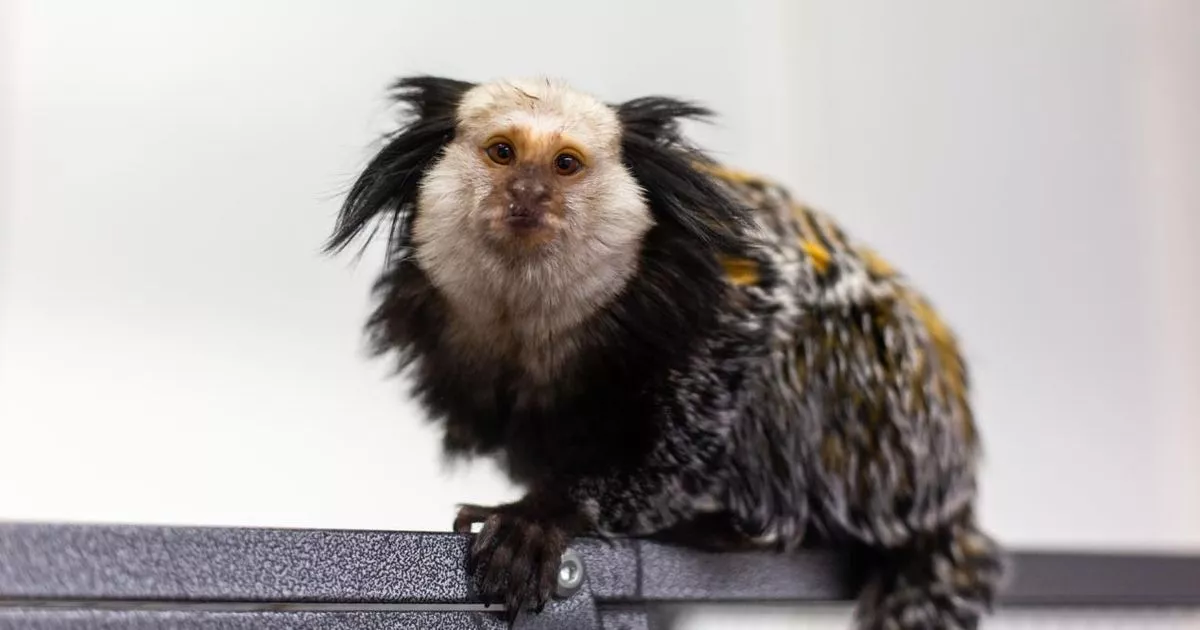The SSPCA has launched a new campaign to tackle rules around owning wild animals.
14:53, 01 May 2025Updated 17:34, 01 May 2025
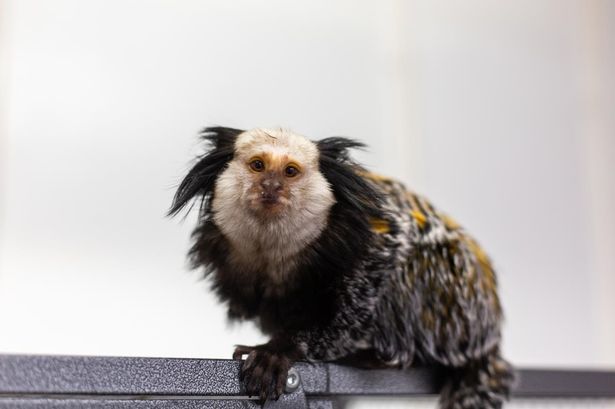 Steve, a young marmoset, was found to be underweight and in a state of stress.(Image: Scottish SPCA)
Steve, a young marmoset, was found to be underweight and in a state of stress.(Image: Scottish SPCA)
A monkey was rescued from a home in East Lothian after being kept in a cage as a “novelty” pet.
The young marmoset, named Steve, was discovered after concerned neighbours called in animal welfare officers.
They had spotted the tiny primate being kept in a large bird cage near the living room window.
Scottish SPCA inspectors found the four-year-old animal in a poor condition. He was underweight, stressed out from constant handling and had developed an addiction to sugary marshmallows after being constantly fed them as a treat.
He was taken into the care of the SSPCA, and was nursed back to health at one of its rescue centres before being transferred to a monkey sanctuary in England.
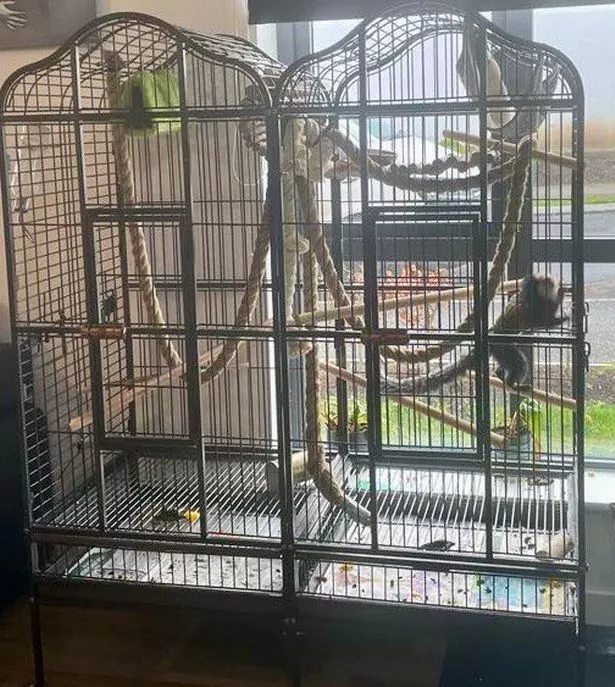 Concerns were raised after Steve was spotted living in a bird cage.(Image: Scottish SPCA)
Concerns were raised after Steve was spotted living in a bird cage.(Image: Scottish SPCA)
Steve is one of many exotic creatures that are being kept in households across Scotland.
On May 1, the SSPCA in partnership with charities OneKind and Born Free, launched a new campaign “Don’t Pet Me”, calling on the Scottish Government to tighten its legislation, which has been criticised as “inappropriate and outdated”, on wild animals.
The animal charities aim to raise awareness of the widespread trade in keeping wild animals as pets and have called on the introduction of a permitted list of animals which can legally be kept.
They say a lack of restrictions around how wild animals can be acquired has led to the suffering of many being kept in unsuitable conditions, with breeding practices, and owners having a lack of understanding of their complex needs.
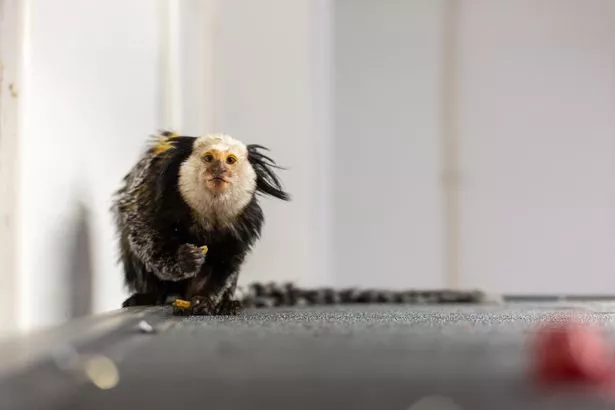 The Scottish SPCA is one of only a handful of rescue centres in Scotland who will admit wild animals that have been kept as pets by individuals into its care.(Image: Scottish SPCA)
The Scottish SPCA is one of only a handful of rescue centres in Scotland who will admit wild animals that have been kept as pets by individuals into its care.(Image: Scottish SPCA)
Gilly Mendes Ferreira, Scottish SPCA Director of Strategic Communications and Partnership Engagement said: “Many people are unaware of the scale of wild animal keeping in Scotland or the challenges it presents for animal welfare. ‘Don’t Pet Me’ aims to highlight the issue and encourage a more responsible approach to exotic pet ownership.
“It’s a growing and worrying trend: animals like Steve being bought and sold as novelty pets, often on impulse, with little understanding of the complex care they require.
“But while these creatures might look cute, they are anything but easy to look after. Marmosets are highly intelligent, social primates that need space, stimulation, and the companionship of their own kind.
“No domestic setting—no matter how well-meaning—can truly meet those needs. Thankfully Steve’s story has a happy ending but not every animal will be so lucky.”
 Join the Daily Record WhatsApp community!
Join the Daily Record WhatsApp community!
Get the latest news sent straight to your messages by joining our WhatsApp community today.
You’ll receive daily updates on breaking news as well as the top headlines across Scotland.
No one will be able to see who is signed up and no one can send messages except the Daily Record team.
All you have to do is click here if you’re on mobile, select ‘Join Community’ and you’re in!
If you’re on a desktop, simply scan the QR code above with your phone and click ‘Join Community’.
We also treat our community members to special offers, promotions, and adverts from us and our partners. If you don’t like our community, you can check out any time you like.
To leave our community click on the name at the top of your screen and choose ‘exit group’.
If you’re curious, you can read our Privacy Notice.
The charities’ research revealed that hundreds of exotic species – including snakes, tortoises, birds, and exotic fish – are being bought and sold for private keeping, often with little oversight or regulation.
An estimated 300 different species were available to purchase online in Scotland over a 16-week period, highlighting concerns with the ease of which animals can be acquired, often with no checks or guidance on welfare.
Kirsty Jenkins, OneKind’s Director of Policy, said: “The research we commissioned painted a deeply worrying picture of how species commonly referred to as ‘exotic pets’ are thought of and treated – often as commodities or collections.
“Such sad stories emerged, of animals being kept in tiny boxes, poor diets, social isolation, forced handling, accidents and deaths. Some species, particularly of reptiles, are thought to be stupid and unfeeling, and treated accordingly.
The launch of the campaign follows incidents of wild animals being illegally released in the Cairngorms National Park earlier this year.
In January, four lynx were “deliberately abandoned” on two separate days in the Dell of Killiehuntly area, and roamed free before being humanely caught. However, one of the big cats, which no longer exist in the wild, did not survive.
They were said to be starving when they were discovered, and were later transferred into the care of Edinburgh Zoo to undergo quarantine before being rehomed.
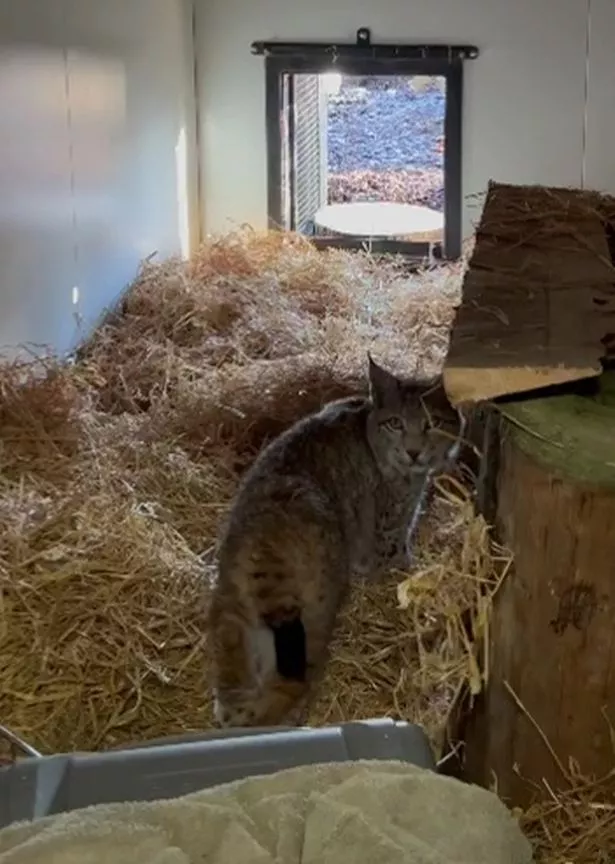 One of the four lynx(Image: PA)
One of the four lynx(Image: PA)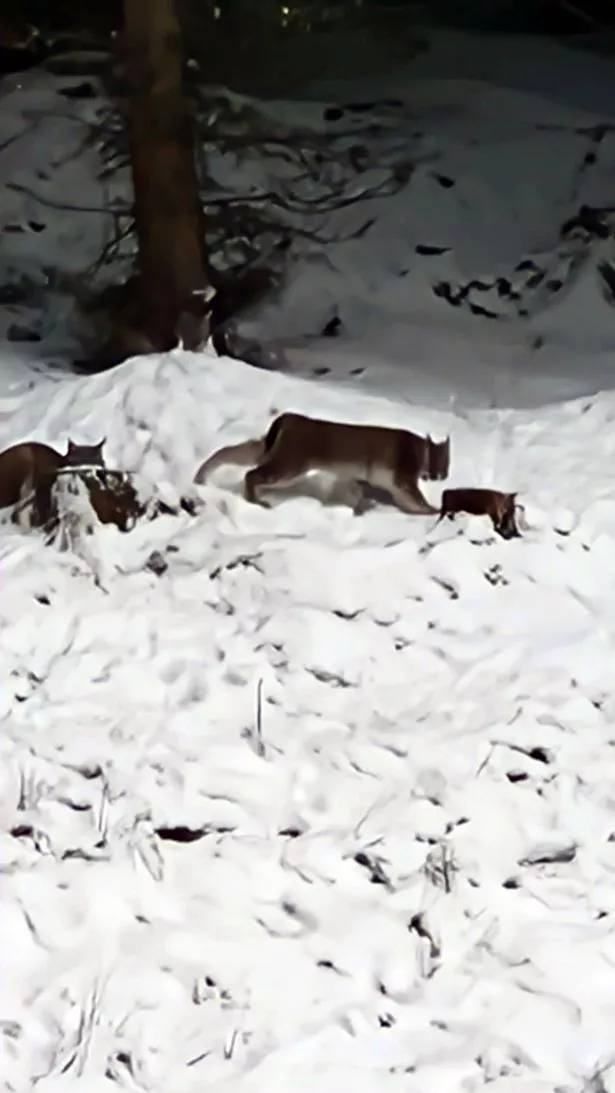 The lynx were illegally released into the Highlands(Image: PA)
The lynx were illegally released into the Highlands(Image: PA)
On February 10, a herd of eight feral pigs were spotted in the Kingussie area. The non-native species were said to have been released in a “selfish and thoughtless act” that put the welfare of animals and people at risk.
They were captured the following day, and humanely culled.
Scottish Government spokesperson said: “We are committed to the highest standards of animal welfare and understand public health and conservation concerns around the keeping of exotic pets. We welcome the work of groups in dealing with the welfare problems caused by irresponsible owners and the campaign for raising awareness of this important issue.
“The Scottish Animal Welfare Commission has explored the issues surrounding the keeping of exotic pets and we will continue to consider the steps that could be taken in this area.”
